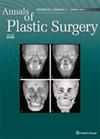GLP-1 Agonists: A Practical Overview for Plastic and Reconstructive Surgeons.
IF 1.4
4区 医学
Q3 SURGERY
引用次数: 0
Abstract
BACKGROUND Glucagon-like peptide-1 (GLP-1) agonists, such as exenatide, liraglutide, dulaglutide, semaglutide, and tirzepatide, effectively manage type 2 diabetes by promoting insulin release, suppressing glucagon secretion, and enhancing glucose metabolism. They also aid weight reduction and cardiovascular health, potentially broadening their therapeutic scope. In plastic surgery, they hold promise for perioperative weight management and glycemic control, potentially impacting surgical outcomes. METHODS A comprehensive review was conducted to assess GLP-1 agonists' utilization in plastic surgery. We analyzed relevant studies, meta-analyses, and trials to evaluate their benefits and limitations across surgical contexts, focusing on weight reduction, glycemic control, cardiovascular risk factors, and potential complications. RESULTS Studies demonstrate GLP-1 agonists' versatility, spanning weight management, cardiovascular health, neurological disorders, and metabolic dysfunction-associated liver diseases. Comparative analyses highlight variations in glycemic control, weight loss, and cardiometabolic risk. Meta-analyses reveal significant reductions in hemoglobin A1C levels, especially with high-dose semaglutide (2 mg) and tirzepatide (15 mg). However, increased dosing may lead to gastrointestinal side effects and serious complications like pancreatitis and bowel obstruction. Notably, GLP-1 agonists' efficacy in weight reduction and glycemic control may impact perioperative management in plastic surgery, potentially expanding surgical candidacy for procedures like autologous flap-based breast reconstruction and influencing outcomes related to lymphedema. Concerns persist regarding venous thromboembolism and delayed gastric emptying, necessitating further investigation into bleeding and aspiration risk with anesthesia. CONCLUSIONS GLP-1 agonists offer advantages in perioperative weight management and glycemic control in plastic surgery patients. They may broaden surgical candidacy and mitigate lymphedema risk but require careful consideration of complications, particularly perioperative aspiration risk. Future research should focus on their specific impacts on surgical outcomes to optimize their integration into perioperative protocols effectively. Despite challenges, GLP-1 agonists promise to enhance surgical outcomes and patient care in plastic surgery.GLP-1 激动剂:整形外科医生实用概览》。
背景胰高血糖素样肽-1(GLP-1)激动剂(如艾塞那肽、利拉鲁肽、度拉鲁肽、塞马鲁肽和替扎帕肽)通过促进胰岛素释放、抑制胰高血糖素分泌和加强葡萄糖代谢来有效控制 2 型糖尿病。它们还有助于减轻体重和心血管健康,有可能扩大其治疗范围。在整形外科中,它们有望用于围手术期体重管理和血糖控制,从而对手术效果产生潜在影响。方法我们进行了一项全面的综述,以评估 GLP-1 激动剂在整形外科中的应用。我们对相关研究、荟萃分析和试验进行了分析,以评估其在不同手术环境下的益处和局限性,重点关注减轻体重、血糖控制、心血管风险因素和潜在并发症。研究结果表明,GLP-1 促效剂用途广泛,可用于体重管理、心血管健康、神经系统疾病和代谢功能障碍相关肝病。对比分析凸显了血糖控制、体重减轻和心脏代谢风险方面的差异。荟萃分析显示,血红蛋白 A1C 水平显著降低,尤其是大剂量的塞马鲁肽(2 毫克)和替泽帕肽(15 毫克)。然而,增加剂量可能会导致胃肠道副作用以及胰腺炎和肠梗阻等严重并发症。值得注意的是,GLP-1 激动剂在减轻体重和控制血糖方面的疗效可能会影响整形外科的围手术期管理,有可能扩大自体皮瓣乳房重建等手术的候选范围,并影响与淋巴水肿相关的治疗效果。对静脉血栓栓塞和胃排空延迟的担忧依然存在,因此有必要进一步调查麻醉中的出血和吸入风险。GLP-1受体激动剂可扩大手术范围并减轻淋巴水肿风险,但需要仔细考虑并发症,尤其是围手术期的吸入风险。未来的研究应重点关注它们对手术效果的具体影响,以便将其有效地融入围手术期方案中。尽管存在挑战,但 GLP-1 激动剂有望提高整形外科的手术效果和患者护理。
本文章由计算机程序翻译,如有差异,请以英文原文为准。
求助全文
约1分钟内获得全文
求助全文
来源期刊
CiteScore
2.70
自引率
13.30%
发文量
584
审稿时长
6 months
期刊介绍:
The only independent journal devoted to general plastic and reconstructive surgery, Annals of Plastic Surgery serves as a forum for current scientific and clinical advances in the field and a sounding board for ideas and perspectives on its future. The journal publishes peer-reviewed original articles, brief communications, case reports, and notes in all areas of interest to the practicing plastic surgeon. There are also historical and current reviews, descriptions of surgical technique, and lively editorials and letters to the editor.

 求助内容:
求助内容: 应助结果提醒方式:
应助结果提醒方式:


